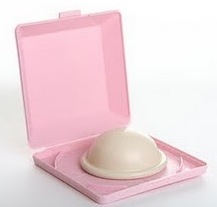Breast Implants And Lymphoma: New Safety Alert From The FDA
 From the Food and Drug Administration (FDA) safety alert yesterday:
From the Food and Drug Administration (FDA) safety alert yesterday:
ISSUE: The FDA announced a possible association between saline and silicone gel-filled breast implants and anaplastic large cell lymphoma (ALCL), a very rare type of cancer. Data reviewed by the FDA suggest that patients with breast implants may have a very small but significant risk of ALCL in the scar capsule adjacent to the implant.
BACKGROUND: In total, the agency is aware of about 60 cases of ALCL in women with breast implants worldwide. This number is difficult to verify because not all cases were published in the scientific literature and some may be duplicate reports. An estimated 5 million to 10 million women worldwide have breast implants. According to the National Cancer Institute, ALCL appears in different parts of the body including the lymph nodes and skin. Each year ALCL is diagnosed in about 1 out of 500,000 women in the United States. ALCL located in breast tissue is found in only about 3 out of every 100 million women nationwide without breast implants.
While the FDA’s new report is interesting, as it stands it’s of little consequence. A mere 60 cases of a unusual breast cancer worldwide is a tiny number compared to the huge number who develop the much more common ductal breast cancers (about one in seven women in the U.S.) Breast implants have not been found to affect this more common cancer incidence. I do expect this statistic to be misquoted by the anti-breast implant factions online.
As an aside, I do remember a case in a fellow plastic surgeon’s mother of a lymphoma near a breast implant capsule when I was a resident. This is the only breast cancer of this type I have ever seen, however, in 14 years of practice. While I don’t doubt the association, I do focus on the significance of this report to the average breast implant patient, which is very little at this point.
– John Di Saia, M.D.
*This blog post was originally published at Truth in Cosmetic Surgery*




 After
After 








